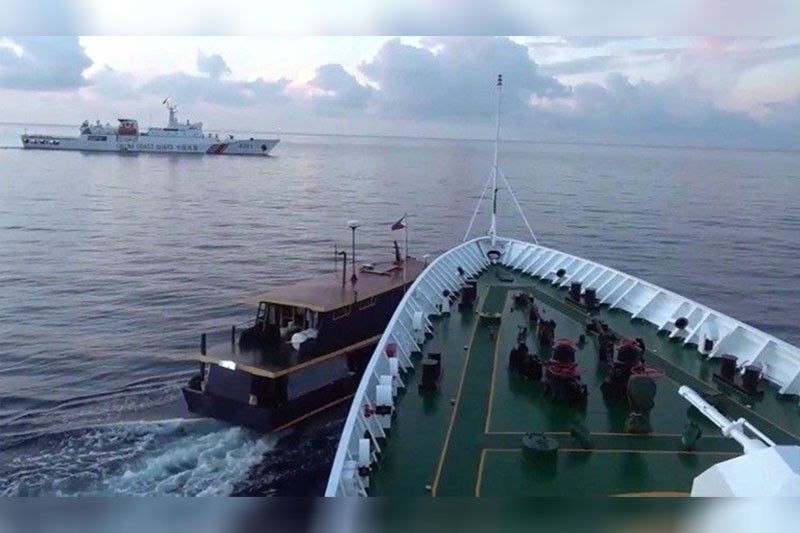US renews commitment to defend Philippines

MANILA, Philippines — The United States has reiterated its support for the Philippines in the wake of China’s “dangerous and unlawful actions” in Ayungin (Second Thomas) Shoal on Sunday, renewing a commitment to defend its treaty ally in case of an armed attack in the South China Sea.
US National Security Adviser Jake Sullivan gave the assurance in a telephone call to his Philippine counterpart Eduardo Año yesterday.
“Mr. Sullivan reiterated US support for our Philippine allies following the PRC Coast Guard and maritime militia’s dangerous and unlawful actions on Oct. 22 obstructing a routine Philippine resupply to Second Thomas Shoal,” a White House statement declared.
In their phone conversation, Sullivan and Año reaffirmed the enduring alliance and friendship between the two nations and discussed upcoming US-Philippine engagements and ways to further strengthen close partnership.
Sullivan emphasized the ironclad US alliance commitment to the Philippines under the US-Philippines Mutual Defense Treaty, which extends to armed attacks on Philippine public vessels, aircraft and armed forces – to include those of its Coast Guard – in the Pacific, including in the South China Sea.
Washington slammed China’s “dangerous, unlawful and provocative” actions in Ayungin Shoal, which jeopardized Filipino crewmembers’ safety.
“The United States stands with our Philippine allies in the face of the People’s Republic of China (PRC) Coast Guard and maritime militia’s dangerous and unlawful actions obstructing an Oct. 22 Philippine resupply mission to Second Thomas Shoal in the South China Sea,” the Office of the Spokesperson of the US State Department said in a statement.
It said the Chinese vessels’ dangerous maneuvers “violated international law by intentionally interfering with the Philippine vessels’ exercise of high seas freedom of navigation.”
The State Department said China prevented the Filipinos from delivering critically needed supplies to troops stationed on the BRP Sierra Madre.
Obstructing supply lines to this longstanding outpost and interfering with lawful Philippine maritime operations, it said, undermines regional stability.
The State Department stressed that Ayungin Shoal is a feature situated well within the Philippine exclusive economic zone and on the Philippine continental shelf.
A legally binding decision by international tribunal in July 2016 decision made it clear that “there exists no legal basis for any entitlement by China to maritime zones in the area of Ayungin Shoal.”
The same ruling affirmed that Ayungin Shoal is a low-tide elevation outside the territorial sea of another high tide feature as such, China’s territorial claims to it are unfounded.
Japan lauded the Philippines for its consistent compliance with the 2016 Arbitral Award as well as its commitment to the peaceful settlement of disputes in the South China Sea.
“Japan believes that the issue concerning the South China Sea is directly related to the peace and stability of the region and is a legitimate concern of the international community including Japan, and thus Japan opposes any unilateral attempts to change the status quo by force as well as any actions that increase tensions in the South China Sea,” the Japanese embassy said in a statement.
“Japan highly appreciates the Government of the Philippines for having consistently complied with the Arbitral Tribunal’s award as to the disputes between the Republic of the Philippines and the People’s Republic of China regarding the South China Sea and shown its commitment to the peaceful settlement of disputes in the South China Sea,” the embassy said.
Japan has consistently advocated upholding the rule of law at sea and re-emphasizes the importance of efforts toward a peaceful resolution of disputes based on international law.
“Japan will continue to cooperate with the international community such as ASEAN member-states and the United States to protect free, open and peaceful seas,” the embassy said.
Japanese Ambassador Kazuhiko Koshikawa posted on X on Sunday that Japan “strongly opposes any unilateral attempts to change the status quo by force or coercion.”
- Latest
- Trending































